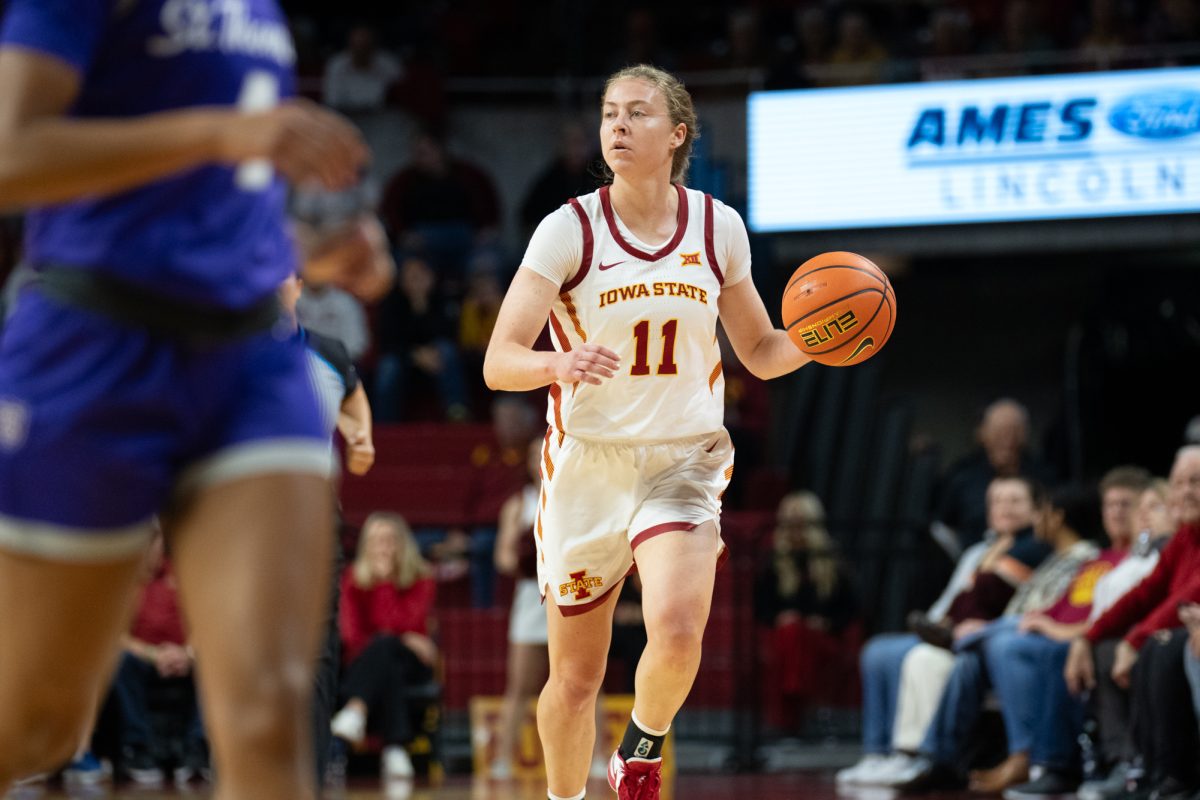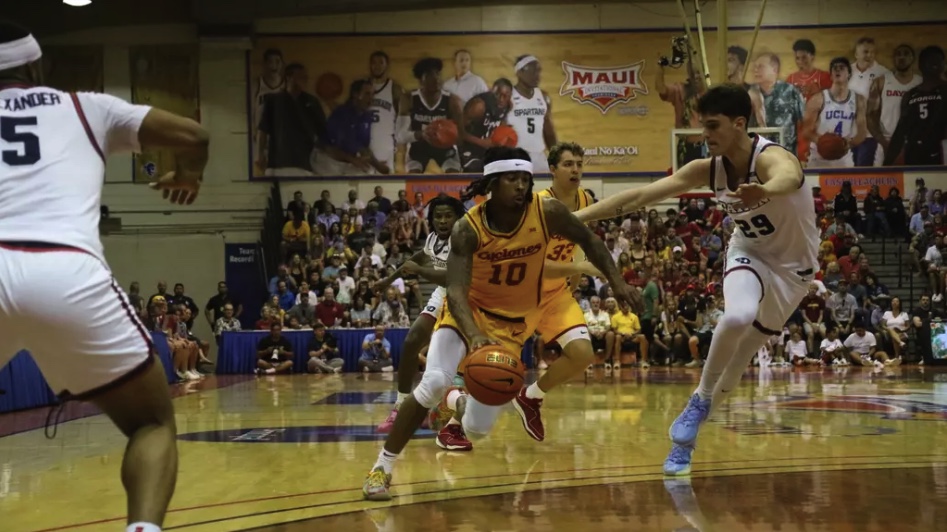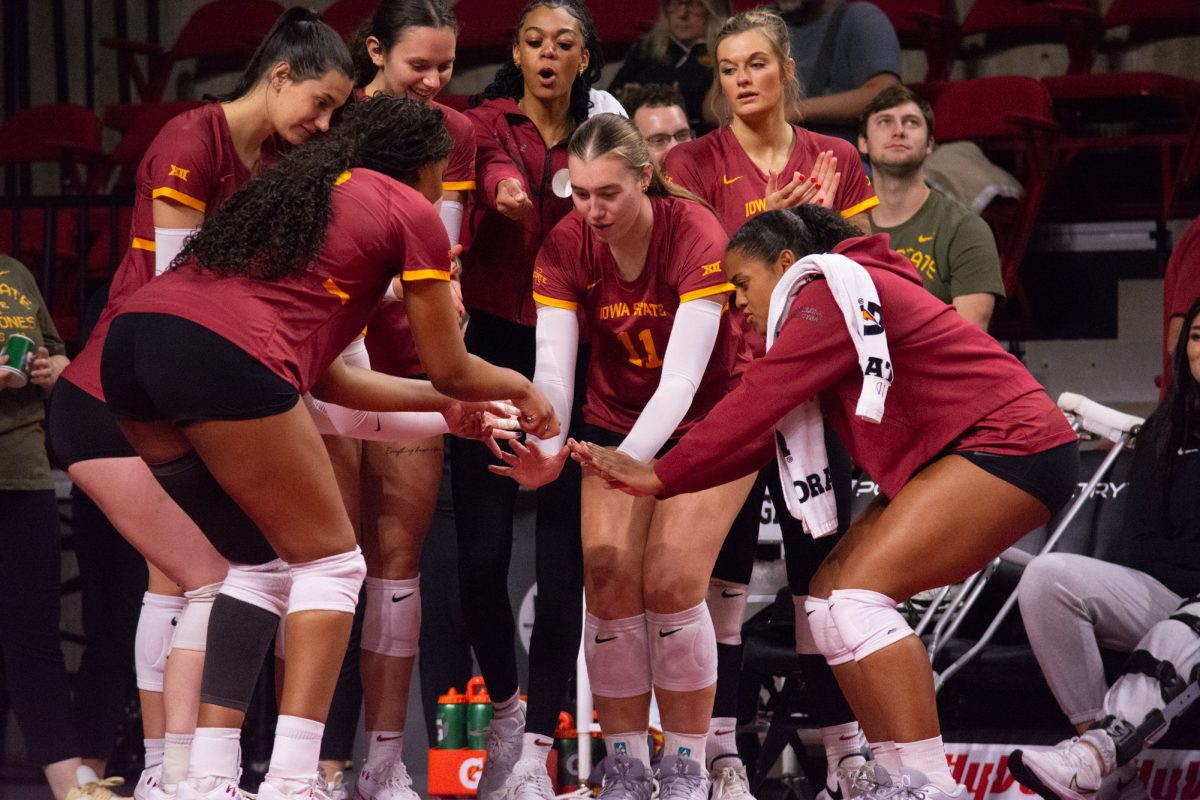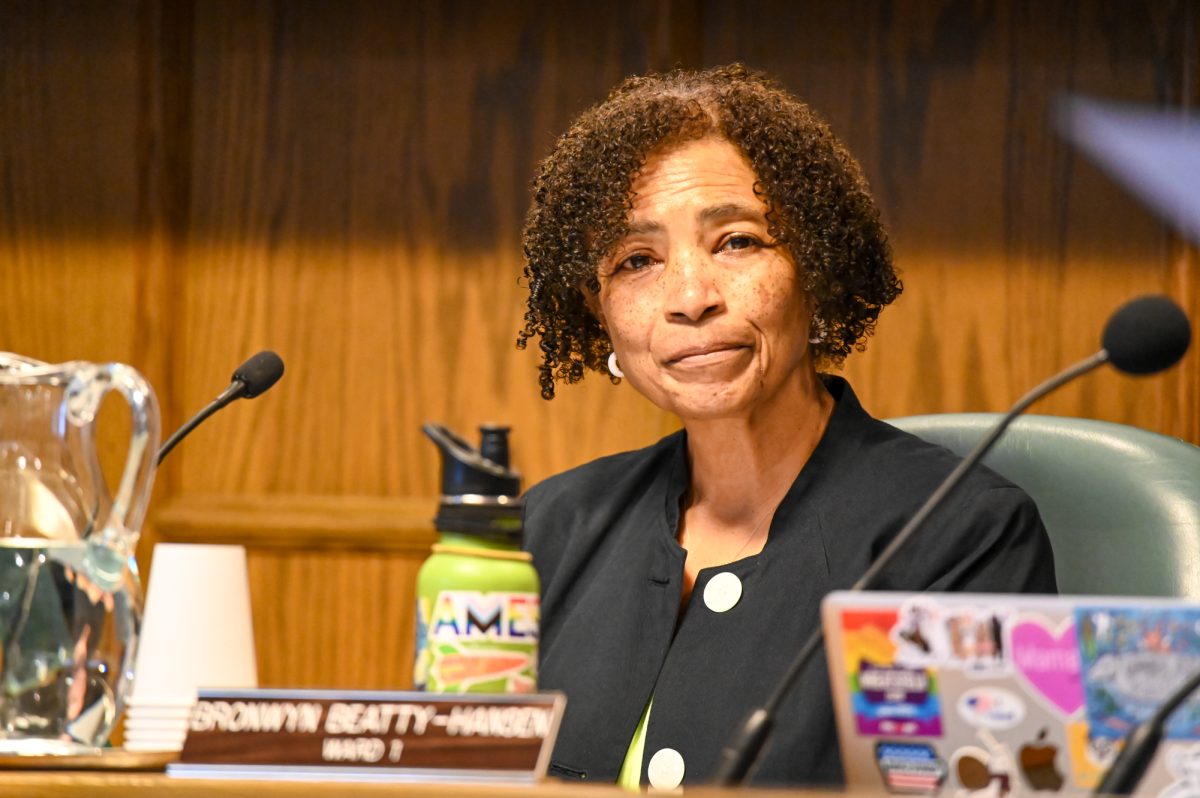Wordly Goods’ volunteer program helps develop regions of the world
September 3, 1998
Editor’s note: This is the fifth of a five-part series on volunteer opportunities in Ames. Anyone interested in volunteering can call the Volunteer Center of Story County at 232-2736, the ISU Volunteer Placement Center at 294-5254 or Worldly Goods at 233-4568.
Students who are looking to make a difference in developing regions of the world can become a part of Worldly Goods’ volunteer program.
Worldly Goods, 233 Main St., is a nonprofit store dedicated to fair trade opportunities for artisans in developing countries, according to a brochure. Worldly Goods sells handcrafts, rugs, dolls, jewelry, musical instruments and furniture from 30 developing countries, as well as the United States.
The store also offers specialized activities, promotion, advertising and training, manager Jo Ann Huss said.
Debbie Durham, assistant manager of Worldly Goods, designed the volunteer training program. Durham said the program has two parts — sales and product training.
“In the product training, we teach the volunteers where the items in the shop come from, what they are made of — and also we talk about the artisans who made them,” Durham said.
“There are two categories of crafts the volunteers have to learn about,” she said. “Traditional crafts are musical instruments that are still being used, and the other items are marketed to meet the interest of European and American consumers, like dolls [and] jeweleries,” she said.
Kelly Wagner, senior in mechanical engineering, said she feels familiar with all the crafts after volunteering in Worldly Goods for three years.
Wagner said her volunteer work helped her understand how people live in other countries.
“It feels good to help families who go through a lot [of hardship] to provide food to their families,” she said.
Durham said there are a wide variety of people volunteering at Worldly Goods.
“There are graduate students, Peace Corps volunteers, undergrad students who are studying the developing countries, former faculty members and also retired Ames and Nevada residents [volunteering here],” Durham said.
Durham said at least four hours of sales training, which she called “nuts ‘n’ bolts,” are necessary for volunteers.
She said the basic volunteer responsibilities are to answer questions about Worldly Goods’ mission, the artisans, how products are made, the countries from which the products originate and to help the customers who are looking for items from a specific country.
Carolyn Michaels, volunteer, said her primary responsibilities are handling sales transactions, helping customers, putting items out on display and cleaning the store if needed.
“I work with nice people,” Michaels said. “[The] handcrafts are beautiful. It’s a privilege to help artisans out.”
She said she “loves” Worldly Goods’ fair trade philosophy.
Durham said fair trade means a fair partnership that provides low-income artisans with a living wage for their work.
“Very often people that are in developing countries have no money for raw materials to make the crafts,” she said. “Retailers who buy their craft pay in advance for the raw materials and buy the craft before it leaves its origin. So the retailers are paying for both raw materials and labor.”
The Fair Trade Federation (FTF) is associated with businesses like Worldly Goods that are committed to providing fair wages and employment opportunities to those artisans, Durham said.
“The main reason we have volunteers is that they appreciate the Fair Trade Federation which finds artisans employment opportunities,” Durham added.
Ruth Osborn, program assistant in the International Resource Center, said she “absolutely” recommends that students volunteer for Worldly Goods.
“It helps artisans around the world work and get paid fairly,” she said.
“The handcraft tradition is endangered because in the urban population, the artisans do not get enough credit for their work since crafts became the vehicle of profit organizations,” Osborn added.
Katie Patch, junior in anthropology, said volunteering for Worldly Goods is a great opportunity to talk with international people who shop there. She also said the experience she gained from her trip to South Africa helped her be a better volunteer for Worldly Goods.
“I realize that I can volunteer not only in Ames, but also worldwide,” Patch said. “I could help someone across the world.”






